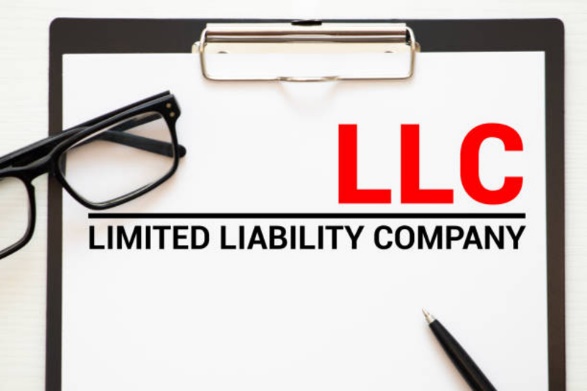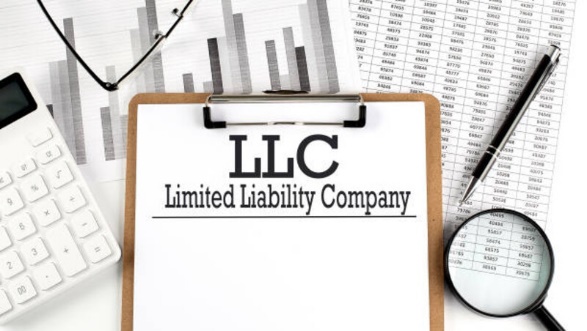
Selecting the correct business structure is a crucial step when launching a new venture, as it can significantly impact various aspects such as taxes, liabilities, and operations. This guide will delve into two common types of business structures: Limited Liability Companies (LLC) and Corporations. Both offer unique advantages, but also come with their own set of complexities and challenges. Whether you're a budding entrepreneur, an established business owner looking to restructure, or a curious individual eager to learn about the complexities of business entities, this guide will provide you with a comprehensive overview. By understanding the distinctions, you will be better equipped to make informed decisions aligning with your business needs and objectives. Remember, choosing the right structure is not about picking the most popular one, but rather the one that will best support your business's growth and sustainability.
What is an LLC?

A Limited Liability Company (LLC) is a hybrid business structure that combines elements of a corporation and a partnership. It offers the limited liability protection of a corporation while allowing for more flexibility in management and tax structures.
How does an LLC work?
An LLC is created by filing articles of organization with the state where the business is located. It can have one or more owners, known as "members," who are not personally liable for the company's debts and liabilities. This means that if the LLC faces legal action or financial issues, the members' personal assets will be protected.
Advantages of an LLC
- Limited Liability: Members' personal assets are protected from the company's liabilities and debts.
- Flexible Management: LLCs have more flexibility in management structure, allowing for both member-managed and manager-managed options.
- Fewer Formalities: LLCs have fewer formalities and requirements compared to corporations, making them easier to maintain.
Disadvantages of an LLC
- Limited Growth Potential: LLCs have a limited ability to raise capital through selling stocks or issuing bonds, which can hinder growth potential.
- Lack of Uniformity: LLCs are not recognized as a standard business structure in some states, which can make it challenging to operate in multiple locations.
- Unclear Regulations: As a relatively new business structure, LLCs have less established regulations and guidelines compared to corporations.
What is a Corporation?
A corporation is a legal entity separate from its owners, known as shareholders or stockholders. It is created by filing articles of incorporation with the state where it will do business.
How does a corporation work?
A corporation has a board of directors responsible for making major decisions and overseeing the company's affairs. Shareholders own the corporation by holding shares of stock, and their personal assets are protected from the company's liabilities.
Advantages of a Corporation
- Limited Liability: Shareholders' personal assets are separate from the corporation's debts and liabilities, providing significant protection.
- Unlimited Growth Potential: Corporations can raise capital through selling stocks and issuing bonds, allowing for potential growth opportunities.
- Established Regulations: As a well-established business structure, corporations have clear regulations and guidelines governing their operations.
Disadvantages of a Corporation
- Double Taxation: Corporations are subject to double taxation, meaning profits are taxed at both the corporate and individual level.
- Complex Formalities: Corporations have more formalities and requirements, such as holding annual meetings and keeping detailed records, making them more complex to manage.
- Less Flexibility: Compared to LLCs, corporations have less flexibility in management and ownership structures.
- Expensive to Set Up: Incorporating a business can be costly, with fees for filing articles of incorporation and ongoing compliance expenses.
LLC vs Corporation: Key Differences

Comparison of ownership structure:
- LLC: Owners are called members, and there is no limit to the number of owners.
- Corporation: Owners are called shareholders, and there can be an unlimited number of shareholders.
Comparison of liability protection:
- LLC: Members have limited liability and are not personally responsible for business debts and liabilities.
- Corporation: Shareholders have limited liability and are not personally responsible for business debts and liabilities.
Comparison of taxation:
- LLC: Profits and losses pass through to members' personal tax returns, avoiding double taxation.
- Corporation: Profits are taxed at the corporate level, and shareholders are then taxed on dividends received, leading to double taxation.
Comparison of formalities:
- LLC: Fewer formalities and requirements, making it easier to manage.
- Corporation: More formalities and requirements, making it more complex to manage.
Which business structure is right for me?
The decision between an LLC or a corporation ultimately depends on your specific business needs and objectives. If you are looking for flexibility and simplicity, an LLC may be the better option. However, if you are seeking to raise capital and have a more formal business structure, a corporation may be the better choice. It is crucial to consult with legal and tax professionals before making a decision to ensure you choose the best structure for your business's long-term success.
Conclusion
Both LLCs and corporations offer distinct advantages and disadvantages, making it essential to carefully consider your business's needs before choosing a structure. While an LLC provides more flexibility and simplicity, a corporation offers unlimited growth potential and established regulations. Consult with professionals to determine the best fit for your business goals. Ultimately, whichever structure you choose, both offer valuable protection for your personal assets and separate your business's liabilities from your own. So, it is crucial to choose the right structure for your business to succeed and grow in the long term.



